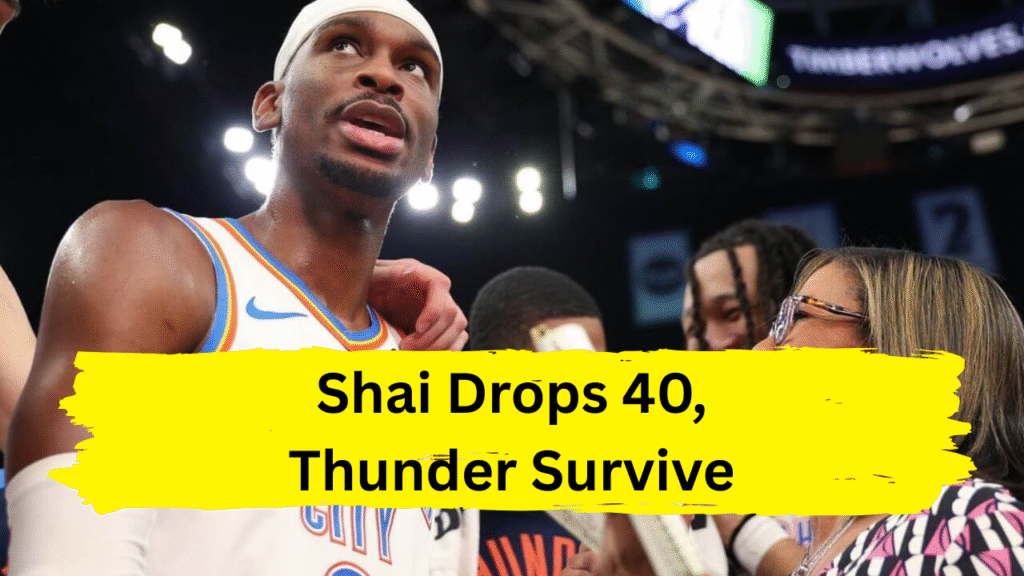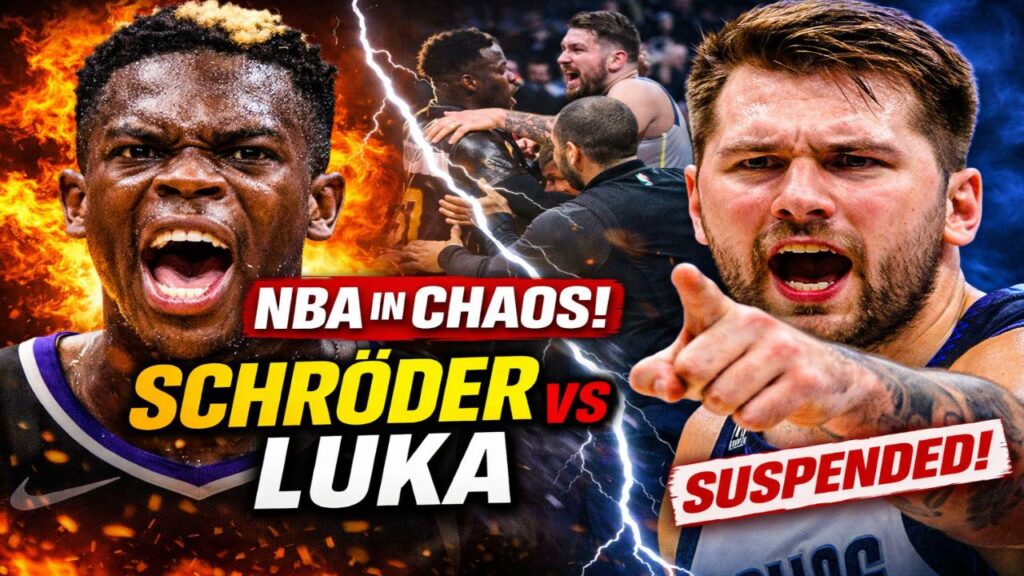In a game that epitomized playoff intensity, Shai Gilgeous-Alexander delivered a masterclass performance, scoring 40 points and flirting with a triple-double to propel the Oklahoma City Thunder to a heart-stopping 128-126 victory over the Minnesota Timberwolves in Game 4 of the Western Conference Finals. The win gives the Thunder a commanding 3-1 series lead, positioning them one victory away from their first NBA Finals appearance since 2012. This clash wasn’t just a showcase of individual brilliance but a testament to resilience, strategic adjustments, and the razor-thin margins that define postseason basketball.
The MVP Rises to the Occasion
Gilgeous-Alexander, fresh off an MVP season, silenced critics and electrified fans with a performance that blended poise, precision, and sheer determination. After a subpar 14-point outing in Game 3—a blowout loss that left the Thunder reeling—he rebounded emphatically. In 40 minutes of action, SGA poured in 40 points on 13-of-30 shooting, dished out 10 assists, and grabbed nine rebounds, falling just one board shy of a playoff triple-double. His clutch free throws in the final minute, including five consecutive points from the line, sealed the win despite a missed attempt that briefly left the door open for Minnesota.
What made his performance even more compelling was his response to the Timberwolves’ crowd, which relentlessly taunted him with “free throw merchant” chants. Unfazed, Gilgeous-Alexander leaned into the narrative, converting 12-of-14 free throws and dismissing the criticism postgame: “I don’t care. I kinda see it as a compliment”. This mental fortitude, paired with his league-leading ability to draw contact, underscored why he’s become one of the NBA’s most unguardable stars.
Supporting Cast Steps Up
While SGA’s heroics headlined the night, the Thunder’s victory was a collective effort. Jalen Williams, often overshadowed by his superstar teammate, erupted for a playoff career-high 34 points, including six three-pointers. His fourth-quarter explosion—14 points in the final frame—helped Oklahoma City withstand Minnesota’s relentless pushes. Meanwhile, Chet Holmgren, playing in his hometown, added 21 points, seven rebounds, and three blocks, including a pivotal rejection in the closing minutes. The trio of Gilgeous-Alexander, Williams, and Holmgren combined for 95 points, embodying the Thunder’s “strength in numbers” philosophy.
Defensive Adjustments and Wolves’ Woes
Oklahoma City’s defensive game plan proved equally decisive. After allowing Anthony Edwards to dominate the previous two games with 62 total points, the Thunder deployed a swarming strategy led by Lu Dort, the NBA’s All-Defensive First Team standout. Dort’s ability to navigate screens and disrupt Edwards’ rhythm limited the Wolves’ star to 16 points on 5-of-13 shooting. The Thunder’s aggressive pick-up points and timely double-teams forced Edwards into seven turnovers, part of Minnesota’s staggering 23 giveaways that led to 22 Oklahoma City points.
Minnesota’s bench, led by Nickeil Alexander-Walker (23 points) and Donte DiVincenzo (21 points), nearly salvaged the game, outscoring OKC’s reserves 64-27. However, the Wolves’ starters faltered. Julius Randle, battling through Thunder defensive schemes, managed just five points on 1-of-7 shooting, while Edwards’ quiet night left Minnesota searching for answers. “Definitely sucks being that close,” Alexander-Walker lamented postgame, encapsulating the Wolves’ frustration.
A Game of Inches and Strategic Gambles
The final minutes were a microcosm of playoff tension. With Oklahoma City clinging to a three-point lead, coach Mark Daigneault opted to foul intentionally—a controversial but statistically sound tactic to prevent a game-tying three. While critics argue it drains excitement, the move paid off as Edwards missed the second free throw intentionally, and Jalen Williams intercepted Randle’s desperate inbound pass with 0.3 seconds left to ice the game.
The Thunder’s offensive execution also shone. They hit 27 shots outside the paint—a staggering number compared to their regular-season average—and sank 43.2% of their threes. This perimeter efficiency, combined with 19 offensive rebounds, allowed OKC to attempt 11 more shots than Minnesota, a critical edge in a two-point contest.
The Road Ahead
As the series shifts back to Oklahoma City for Game 5, the Thunder stand on the cusp of history. A franchise that last reached the Finals in 2012—and hasn’t won a title since 1979 as the Seattle SuperSonics—now leans on its young core to complete the journey. For Minnesota, the challenge is monumental: no team in NBA history has overcome a 3-1 deficit in the Conference Finals. Yet, if Edwards rediscovers his explosiveness and the Wolves tighten their ball security, this series could still hold surprises.
Conclusion
Game 4 was more than a playoff showdown; it was a narrative-rich spectacle highlighting resilience, tactical ingenuity, and the rise of a new NBA icon in Shai Gilgeous-Alexander. As the Thunder inch closer to the Finals, their blend of youth, depth, and star power serves as a blueprint for modern team-building. For the Wolves, the offseason questions loom, but their valiant bench effort and Edwards’ untapped potential offer hope. One thing is certain: this series has solidified SGA’s place among the league’s elite—and proven that Oklahoma City’s thunder is far from fading.


